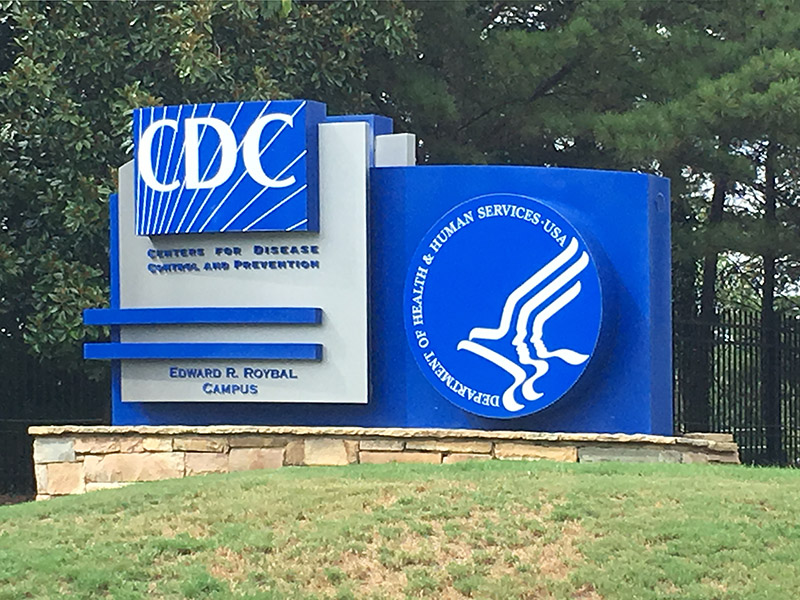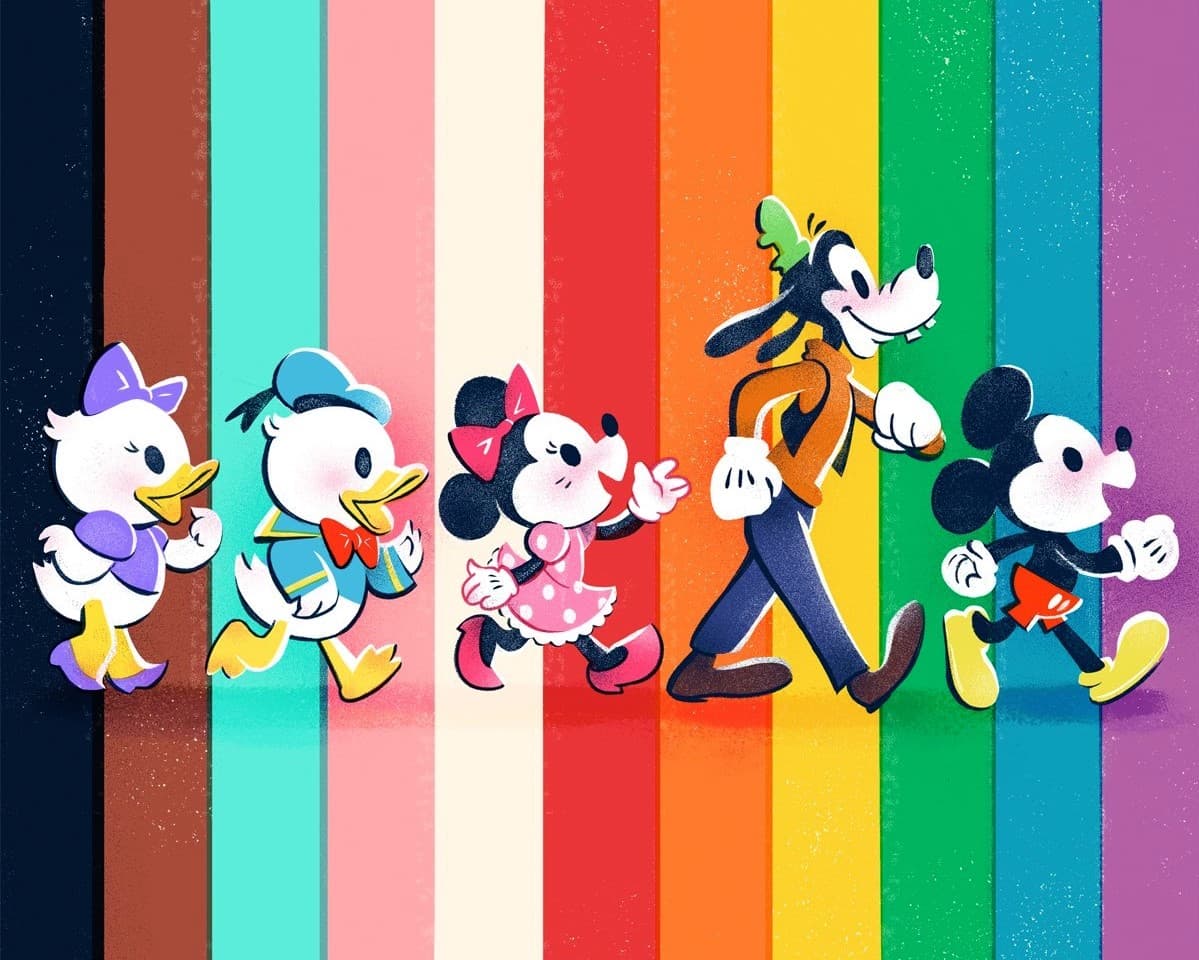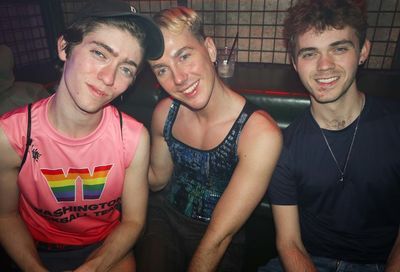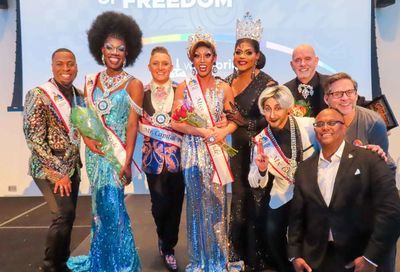HRC Releases 2012 CEI UPDATED
Local businesses earn perfect scores on latest equality index
In the D.C. area, LGBT-friendly corporate practices aren’t just a sop to appease a special interest group. Rather, local businesses say it’s a bargaining chip that helps them recruit and retain top talent.
”At the end of the day, it’s good business practice,” says John Stickeler, workplace diversity director for the quasi-governmental mortgage lender Freddie Mac, headquartered in McLean. ”It shows our company’s commitment to inclusion.”
Freddie Mac was one of 12 Washington-area businesses that earned perfect 100 percent scores on the Human Rights Campaign’s 2012 Corporate Equality Index (CEI), an annually administered survey that grades a number of Fortune magazine’s 1,000 largest publicly traded companies, American Lawyer magazine’s top 200 revenue-grossing law firms, and a few hundred businesses with more than 500 full-time employees – 636 in all – on measures including health care parity and domestic partner benefits for LGBT employees.
Now in its 10th year, the CEI has recently adopted more stringent criteria when grading businesses, including whether a company provides transgender-specific benefits and protections, demonstrates public commitment to the LGBT community through philanthropy and has in place culturally competent programs or training.
In addition to Freddie Mac, other local businesses earning 100 percent ratings under the new criteria included consulting firm Booz Allen Hamilton Inc., Capital One Financial Corp., both based in McLean; defense firm Lockheed Martin Corp. of Bethesda; Gaithersburg-based food industry giant Sodexo Inc.; and Choice Hotels International of Silver Spring. Also earning perfect scores were local law firms DLA Piper of Baltimore and five D.C.-based firms: Akin, Gump, Staruss, Hauer & Feld LLP; Covington & Burling LLP; Crowell & Moring LLP; Hogan Lowells US LLP; and Wilmer Culter Pickering Hale & Dorr LLP.
”This has really become part of the mainstream protocol of operating a successful business,” says Deena Fidas, deputy director of the Human Rights Campaign Foundation Workplace Project. ”It’s not just a coastal phenomenon.”
In contrast, only four local companies earned a rating of zero on the CEI survey: Amerigroup Corp. of Virginia Beach, Va.; NII Holdings of Reston; Smithfield Foods Inc., of Smithfield, Va.; and the D.C.-based Washington Post Company.
Fidas says that the CEI survey makes note of firms that have not responded to inquiries about their benefits packages and LGBT-related corporate policies, but also said that HRC tries to collect data from publicly available sources and other avenues to gain insight into a firm’s practices. If there is no evidence of any such policies, only then would a company receive a zero rating.
For companies in the District, Fidas says they are required to adhere to the District’s Human Rights Law. But, she adds, in order to receive a positive rating on the CEI, a company needs to do more than just abide by what is required by state or local law.
Overall, Fidas says, most companies have been quite proactive in not only completing the survey, but trying to earn a full 100 percent score by adopting policies or programs that meet the criteria. Fidas says this occurs across all employment fields, though in terms of sheer numbers law firms remain the leaders in offering such benefits to their LGBT employees.
Stickeler, the diversity director for Freddie Mac, says his firm has specifically gone out of its way to change its corporate culture regarding LGBT employees. Just four years ago, the mortgage giant did not earn 100 percent on the index.
In fact, Stickeler says, he knows of at least three highly qualified candidates who were offered positions at Freddie Mac but turned down the offers, precisely because the company didn’t have a 100 percent rating on the CEI.
”Our employees feel like it’s a very inclusive work environment,” he says of the company’s corporate culture toward LGBT employees. ”When they see the company offering these benefits and programs, it validates their perception that the company respects all employees.”
Chuck Stephens, senior associate for diversity and inclusion at Booz Allen Hamilton, says he finds LGBT inclusion to be one of the company’s ”core values.”
”It’s very accepting,” he says. ”After all, why does who you love impact your ability to get the job done?”
Stephens specifically cites the company’s policies in offering benefits and health care parity to transgender employees, and says the company, which has scored 100 percent on the last three CEI surveys, had offered domestic partner benefits and transgender-friendly benefits prior to its participation in the CEI survey three years ago.
Stephens also said that by providing LGBT-friendly benefits and engaging with the local LGBT community through fundraising for AIDS Walks or participating in the LGBT pride parades sends a message to potential employees that the company values all forms of diversity, which gives the company a ”competitive advantage” in recruiting.
”It’s an absolute asset,” Stephens says of the company’s LGBT-friendly corporate culture, especially in contrast to the public sector in a state like Virginia. ”We’re doing things above and beyond – from an employee-value proposition – what the law requires. … So it’s absolutely a differentiator for us to recruit top talent and be an employer of choice.”
[UPDATE: Rima Calderon, Washington Post Company vice president of communications and external affairs, responded to this story, saying that the company rarely responds to survey requests and that policies vary among the company’s affiliates.
Of two company-wide policies, Calderon said via email: “Our policy prohibiting harassment clearly prohibits harassment based on gender and sexual orientation. On the health-care side, The Washington Post Company was an early adopter of same-sex domestic partner benefits across our health plans. Over the years, we’ve enhanced these benefits, including access to optional life [insurance] for partners and their dependent children.”]
Support Metro Weekly’s Journalism
These are challenging times for news organizations. And yet it’s crucial we stay active and provide vital resources and information to both our local readers and the world. So won’t you please take a moment and consider supporting Metro Weekly with a membership? For as little as $5 a month, you can help ensure Metro Weekly magazine and MetroWeekly.com remain free, viable resources as we provide the best, most diverse, culturally-resonant LGBTQ coverage in both the D.C. region and around the world. Memberships come with exclusive perks and discounts, your own personal digital delivery of each week’s magazine (and an archive), access to our Member's Lounge when it launches this fall, and exclusive members-only items like Metro Weekly Membership Mugs and Tote Bags! Check out all our membership levels here and please join us today!






















